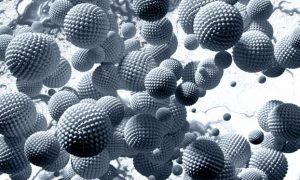The application of food-based nanoparticles in cancer treatment and several other therapeutic areas is continuing to drive stellar results, including in Pfizer-BioNTech and Moderna’s use of lipid nanoparticles in the development of their respective COVID-19 vaccines. Unfortunately, the prospect of large-scale therapeutic production has been hindered by the expense and complexity associated with nanoparticle manufacturing. A team of researchers at Tokyo University of Science has leveraged a food that’s no stranger to mass production, in both native and genetically modified forms, to address the problem.
These corn-derived nanoparticles (cNPs), which have proven capable of mitigating tumor growth in mice, indicate that entirely new cancer treatments could soon be making their way into health systems. The researchers centrifuged a homogenous mixture of sweet corn to filter out the one to 100 nanometer-sized nanoparticles. Colon26 tumor cells, NIH3T3 cells, and RAW264.7 macrophage-like cells were among those that generated auspicious results in responding to the nanoparticles. Proving that cNPs discriminate for carcinogenic cell lines, they were able to impede growth of colon26 cells. Moreover, they triggered the release of tumor necrosis factor-alpha (TNF-alpha), an inflammatory cytokine secreted by macrophages.
Combining with RAW264.7 cells, The Tokyo University of Science’s nanoparticles also “significantly suppressed” colon26 cell diffusion. They slowed tumor growth in mice through direct injection into colon26 tumors while not causing serious side effects such as rapid weight loss.























